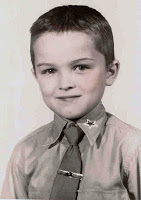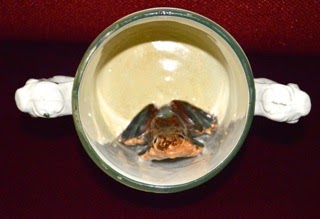Recalling clearly my eldest sister’s evaluation of the girls in her dorm five years before, [“They’re all so immature,” she said,] I wondered what I’d find in the boys dorm at the same small church-related college in north central Kansas five years later. Would there be a lot of horseplay, silliness, competition? Would the talk be rough, derisive, pious? I was pretty excited by the prospect of living around so many other guys because I had no brothers. Would I find a brother there? If so, would I like it? Who would I room with? Questions. What would be the answers? I already knew a little about the small burdens in that dorm, of needing to keep the room clean in order to pass periodic inspections, to fulfill duties of dust mopping hallways, straightening lounges, or cleaning shower rooms. Would I enjoy bull sessions?
I trudged up the steps of the rather new dorm toting my bags and boxes, depositing them in my room. Then in came my roommate—Roy his name—from a small southwest Kansas town out in the Great Plains where one can drive for a hundred miles without seeing trees or hills, where the wind blew without stop, where he attended a school with one hundred students including elementary and high school. I was lucky for, like me, Roy was studious, a seriously mature student. That helped both of us to get in good shape academically. And he was nice this slender, strong, black haired boy with a resonant voice and good manners. And he was clean.
I came to school with a stereo, a small LP collection, artwork to hang on the dorm room wall, and a two-drawer file cabinet. He came with some books, a basketball, running shoes, and a car. I came with years of musical experience; he with years of playing high school sports. We had both worked regular jobs. We shared our room, shared respect, and shared some classes for we were both ministerial students. We got along well.
Roy was athletic. He’d been the all-around great student in his graduating class: going out for all the sports, singing in the choir, dating the girls, even entering the state speech and debate tournament where he presented an interpretation of T. S. Elliot’s “The Hollow Men” for which he was awarded recognition. My eighteen-year-old mind didn’t grasp that serious poem; I wonder if his did. Some nights when Roy and I were studying in the dorm, he at his desk beneath the window, I in the middle of the room, I’d notice the floor vibrating. The first time I looked up for an explanation, I found Roy unconsciously bouncing his legs, setting the room shaking. This nervous habit may have been related to his fast speech, his hand movements when making some point, his fast metabolism that kept him slender.
There were some shenanigans in the dorm; what else would one expect from a group of undergraduates thrown together in close proximity with dorm hours that gathered us in at 10:00 pm. There was the din that finally quieted around 11:30. There were wrestling matches organized at odd hours. In general, we lived surrounded by other guys about our age, nice guys at that.
I noticed that most afternoons at the same hour Roy would return to the room following one of his classes. That particular afternoon I was reading at my desk when I got the idea, surely inspired by a current scary movie or simply by remembering life at home where one of us kids would scare another. I wondered if I’d really pull the practical joke becoming as immature as some of my dorm mates. When Roy was due to return, I turned off the light, crawled under his bed, and waited. It seemed a long wait, but finally the door opened. Roy walked over to put his books on his desk, then opened his closet door. All I could see were his feet. I was trying to figure out how most effectively to scare him: scream, grab, jump? Waiting I decided simply to reach out and clasp his ankles. Finally he took a step toward the bed and turned around into the perfect position with his back turned. I reached out, clasped his ankles and said nothing.
He said something, probably not anything he’d say from the pulpit, and screaming jumped. I suppressed my laughter and crawled from my hiding place. That was it. Fortunately Roy didn’t faint, and the practical joke did not end our friendship. It probably didn’t strengthen it though. We lived together two years more before the summer we both married our girlfriends. In fact, I gave my girlfriend an engagement ring in the backseat of his car while we were on a double date. My best guess? He forgave me.
© Denver, 2014
About the Author
Phillip Hoyle lives in Denver and spends his time writing, painting, and socializing. In general he keeps busy with groups of writers and artists. Following thirty-two years in church work and fifteen in a therapeutic massage practice, he now focuses on creating beauty. He volunteers at The Center leading the SAGE program “Telling Your Story.”
He also blogs at artandmorebyphilhoyle.blogspot.com





